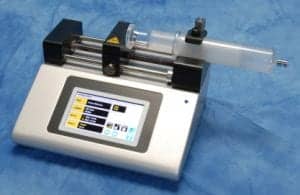Prodesse Inc announces that it has received 510(k) clearance from the FDA to market its ProGastro™ Cd Assay as an in vitro diagnostic product in the US.
The clearance came less than 90 days after submission. ProGastro Cd uses real-time PCR (polymerase chain reaction) technology; it is simple to use and easily integrates into existing lab workflow. The product has been optimized for the use of automated extraction technology so that its inhibition rate is extremely low. A result can be obtained in as little as 3 hours using the assay.
Clinical trials were conducted at three clinical laboratories in the US. They reported that ProGastro Cd was easy-to-use and that it rapidly and accurately detected toxigenic strains of Clostridium difficile. In its clinical trials, ProGastro Cd detected 43% more positives than did the current gold standard, the cell cytotoxin assay. Genetic sequencing confirmed that over 90% of the additional positives detected by ProGastro Cd were accurate. In addition, there were no inhibited samples reported by the three clinical sites.
Clostridium difficile is a major cause of healthcare-associated infections, notably antibiotic-associated diarrhea, pseudomembranous colitis and toxic megacolon. Annually, there are over 500,000 US infections (and over 28,000 deaths) and over 800,000 infections in the European Union.
A recent study in Infection Control and Hospital Epidemiology estimated the economic impact in the US at $3.2 billion. The problem is compounded by the fact that over 90% of US laboratories use immunoassay testing; these tests have been shown to be quite insensitive (some below 50%) compared to molecular testing. Even the gold standard cytotoxin test (which is used in fewer than 10% of US laboratories because it is technically demanding and takes at least 2 days for results) is reported to be only about 70% sensitive compared to molecular testing.
The Health Protection Agency in the UK, which tracks deaths from Clostridium difficile, reports that it is responsible for more deaths than MRSA, and that the death rate is increasing.
Prodesse CEO Tom Shannon commented, “Even though we expected this was going to be a large market when we made the decision to develop a C. diff assay, we’ve been surprised by the intensity of interest from laboratories that want to perform evaluations. With this clearance, we expect to increase our customer base very substantially. Our efficient workflow design, with its user-friendly sample prep process and extremely low inhibition, works very well for busy laboratories, especially those that process many C. diff samples every working day.”
Prodesse also announced earlier this week that it has submitted a 510(k) application to the FDA for its ProParaflu+™ Assay (for differentiating parainfluenza 1, 2 and 3).
This assay will join ProFlu+™ and Pro hMPV+™ as the next member of the “plus” family. These assays are designed using a common internal control strategy so that a single nucleic acid extract can be used in any combination of tests, allowing labs tremendous flexibility. This gives labs the ability to run only the most medically-appropriate tests with the benefits of using a highly-automated, closed system real-time PCR platform. The ProAdeno+™ Assay (for adenovirus) is in development and will begin clinical trials in the Fall.
Source: Prodesse Inc



